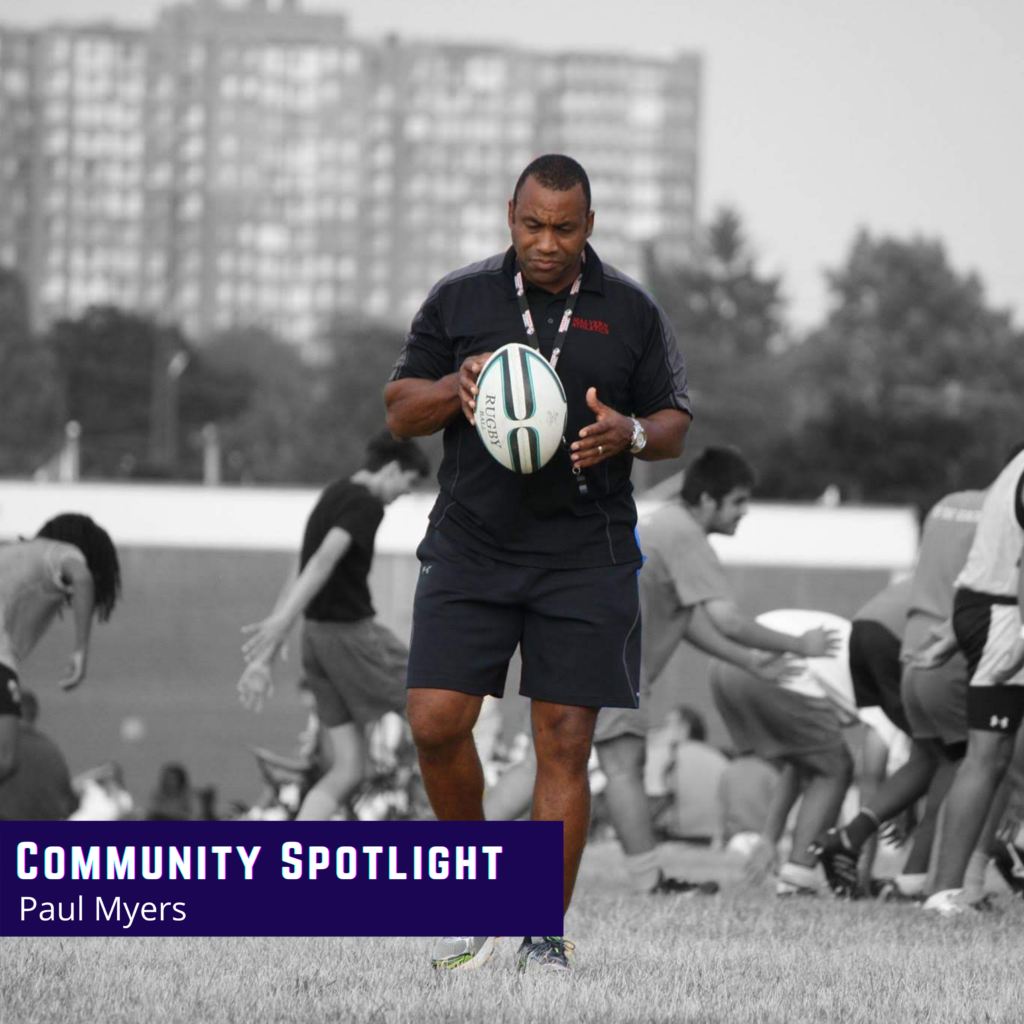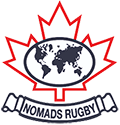
BIPOC Leadership in Rugby Interview With Paul Myers
Over the last few weeks we have shared interviews with leaders in our community. Answering the following question:
‘What is the importance of Black leadership in rugby and the importance of representation in our game?’
Paul Myers, Toronto Inner-city Rugby Foundation Board member, Rugby Coach and Mentor shares his thoughts:
“I came into the game as a 22 year old a long time ago. Let’s just say, I more or less knew, all the players of color by name. Sometimes after games we’d ask why aren’t there more of “us” playing. We’d shrug and say, no equipment or they prefer football. Yet we were there. We were outliers determined to play the game despite barriers. We wanted to see what was on the other side of the fence.
That was a long time ago. Have things changed? Somewhat.
Regionally, community-based sports organizations have seen the core values of rugby as a tool to develop the individual. They have been catalysts within the sport to bring more BIPOC faces to the game. Groups such as Thunder Rugby, Roots Rugby and The Toronto Inner-city Rugby Foundation (TIRF) have brought awareness of the game and its values to their constituents. These organizations have reduced economic, geographic and cultural barriers to participation in the sport. The game is slowly changing from its culturally monolithic roots to one with a more diverse make up.
However, to effect real change these new groups have to not only participate, they have to a part of the decision-making process. To borrow a line from Hamilton “They have to be in the room where it happens”
Why is that important?
Everyday a BIPOC person looks through a lens that is defined by color. BIPOC participants want to see a person who looks like them in a position of authority, a decision maker. It validates their contribution to the game. Such a person provides an example of what is possible when one pushes beyond perceived or real barriers, expands their horizon and strives for more.
The BIPOC leader is a catalyst for organizational awareness to bias. Many new players arrive at the field excited to join a new team. If they are met with indifference and apathy they will not return. However, if they are met with openness, recognition of who they are as a person, and some appreciation of their culture, they are more likely to stay, participate, and thrive.
Players from marginalized communities may not have access to training opportunities, facilities or other resources to help them along the path to success. They are often at a disadvantage as they attempt to tryout for representative sides, unaware of the requirements or lacking a robust knowledge of the game. Having a selector who has come from similar circumstances and has had to overcome the same obstacles present to support and advocate for that individual may help others look beyond the players lack of knowledge and see the potential.
Black History Month provides an opportunity to celebrate the achievements and contributions of Black Canadians throughout history. It is a time to reflect on where we are and work towards a more inclusive and diverse Canada. In Rugby we are slowing inching forward. We have realized that diversity and inclusion are not just buzz words, rather they are the pillars that BIPOC have been struggling to improve. It is imperative that our sport at all levels reflects our society, inviting and valuing each person’s thoughts, ideas and contributions.
We have amazing young leaders emerging. They are speaking out. They are example to others to use their voices to create positive change within the sport. They deserve to be in the room.”
For more interviews like Paul’s search #communityspotlight on Instagram or Facebook.
